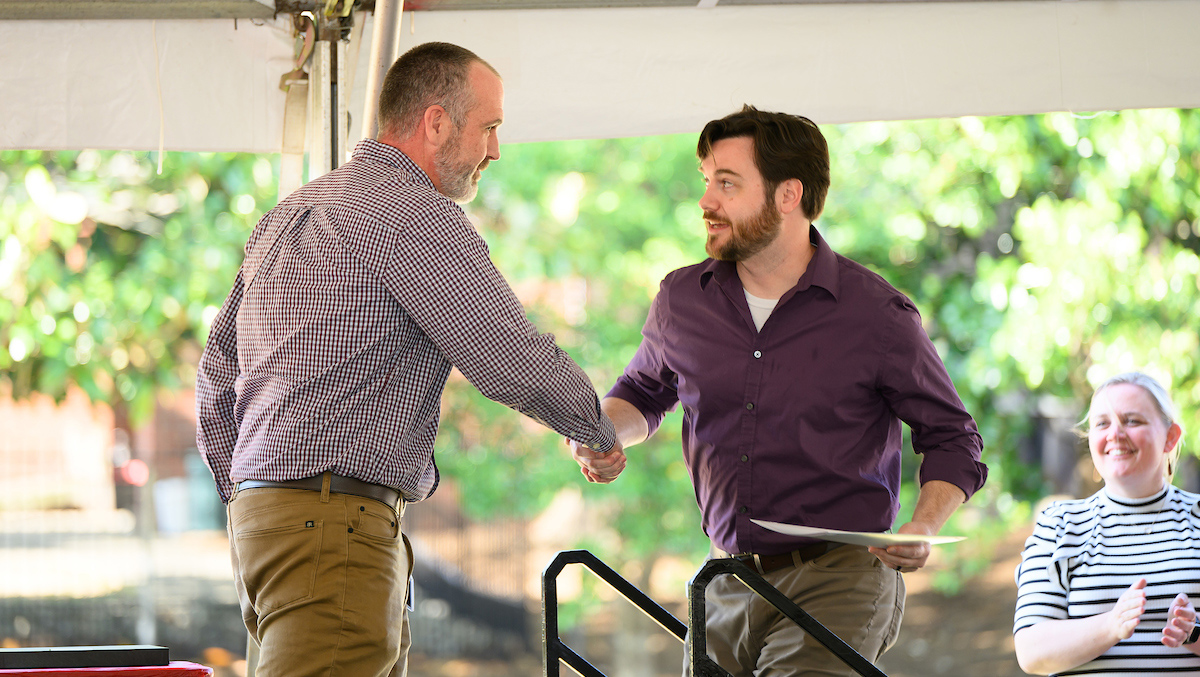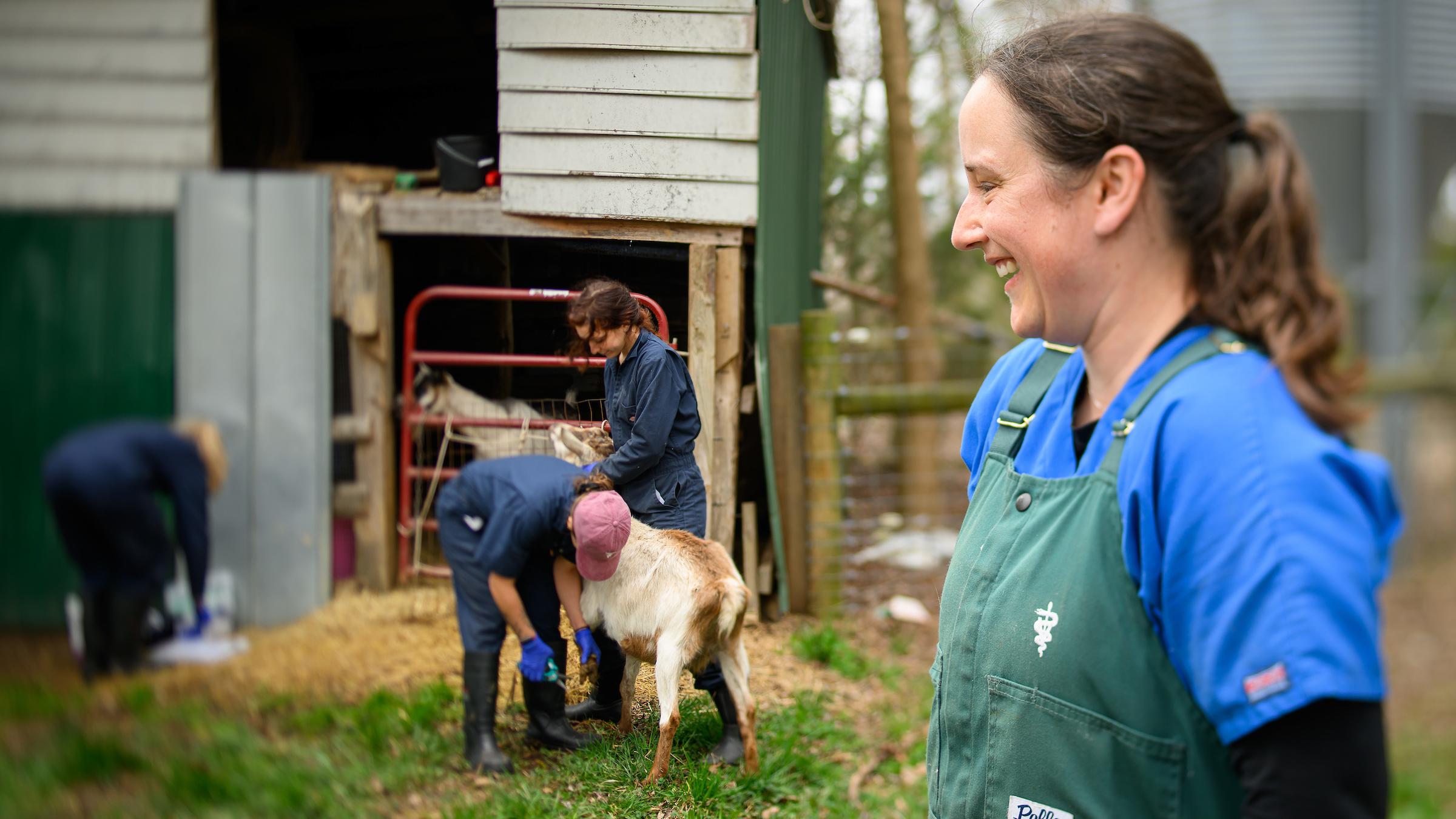Study Unlocking Mysteries of Cell Division Receives NIH Funding

The National Institutes of Health has awarded a $1.5 million grant to NC State College of Veterinary Medicine’s Caroline Laplante for a study into the complex inner workings of cell division, the fundamental foundation of life.
The study investigates the core machinery of cytokinesis, when a single cell separates into two, a process central to developing multicellular organisms and transmitting genetic material. Without cytokinesis, cell growth and development would not occur.
Laplante, an assistant professor in the CVM’s Department of Molecular Biomedical Sciences is co-leading the five-year project with Mary Elting, an assistant professor in the NC State University Department of Physics.
The study’s goal is to determine the mechanisms within the contractile ring of the cell cortex. The ring’s constriction causes movement of the cell’s plasma membrane between two compartments that become individual cells when the cell divides.
Proteins within the ring occupy distinct layers: an anchoring outer layer with plasma membrane-interacting proteins and an inner ring containing the force-producing protein myosin.
Laplante’s research will determine how these proteins are organized into complex structures, how those structures move within the rings and how the overall organization governs the force of the rings, according to the research proposal. It is unknown how cytokinetic proteins cause tension force in the rings.
The findings are expected to establish “novel parameters for the building of a comprehensive mathematical model that can predict cytokinetic phenotypes from protein organization, dynamics and function,” according to the proposal, and the information could act as a “template for understanding the mechanism of cytokinesis and even perhaps other non-muscle contractile cellular machines in other species.”
Laplante, a quantitative cell and developmental biologist, focuses her research on uncovering molecular structures and mechanisms in single cells and developing organisms. Her work, including the newly funded project, often uses high-speed fluorescence microscopy to study cellular dynamics.
Last year, Laplante was part of a research team that received a $2 million grant from the National Science Foundation for a project to create genetically encoded tools to describe, control and track how strongly genes are expressed in the epigenomes of living cells. The work will impact the ability to improve human, animal and environmental health.
~Jordan Bartel/NC State Veterinary Medicine


